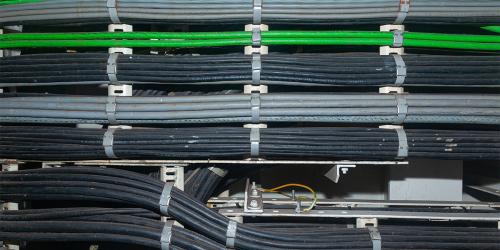Stainless steel wire is a versatile and durable material used in a wide range of industrial, commercial, and domestic applications. Known for its strength, corrosion resistance, and flexibility, stainless steel wire is an essential component in construction, manufacturing, and even artistic designs. In this blog, we will explore the benefits, applications, and types of stainless steel wire available today.
What is Stainless Steel Wire?
Stainless steel wire is a thin, strong, and highly durable metal wire made from stainless steel alloys. It is resistant to rust and corrosion, making it suitable for both indoor and outdoor applications. Depending on the grade and composition, stainless steel wire can be used for heavy-duty industrial applications or delicate craftwork.
Benefits of Stainless Steel Wire
- Corrosion Resistance – Stainless steel wire resists rust, moisture, and chemicals, making it ideal for outdoor and marine applications.
- High Strength – It provides excellent tensile strength, ensuring durability in demanding environments.
- Versatility – Available in various thicknesses, coatings, and grades to suit different applications.
- Temperature Resistance – Withstands extreme temperatures, making it suitable for high-heat applications.
- Low Maintenance – Requires minimal upkeep compared to other materials, reducing long-term costs.
Common Applications of Stainless Steel Wire
- Construction and Engineering – Used for reinforcing structures, securing materials, and wire mesh applications.
- Automotive and Aerospace – Essential for cables, exhaust systems, and other high-strength components.
- Marine and Offshore – Ideal for rigging, fishing nets, and corrosion-resistant fastenings.
- Manufacturing and Fabrication – Used in conveyor belts, filters, and industrial machinery components.
- Medical and Pharmaceutical – Found in surgical instruments, orthodontic braces, and medical devices.
- Jewellery and Crafts – Popular in jewellery making, sculptures, and decorative wire art.
- Electrical and Telecommunications – Used for wiring, shielding, and grounding in electronic applications.
Types of Stainless Steel Wire
- 304 Stainless Steel Wire – The most common type, offering good corrosion resistance and versatility.
- 316 Stainless Steel Wire – Highly resistant to saltwater and chemicals, perfect for marine and medical applications.
- Soft Annealed Wire – Flexible and easy to work with, often used in crafts and fine applications.
- Hard Drawn Wire – Provides high tensile strength for industrial and structural uses.
- Spring Wire – Designed for high elasticity and resilience, used in springs and tension applications.
- Welding Wire – Used in welding and fabrication for creating strong and durable joints.
How to Choose the Right Stainless Steel Wire
- Consider the Environment – Marine and chemical applications require highly corrosion-resistant grades like 316 stainless steel.
- Determine the Strength Requirement – Select hard drawn or spring wire for high-tensile applications.
- Assess Flexibility Needs – Soft annealed wire is best for flexible applications such as jewellery and crafts.
- Select the Right Diameter – Ensure the wire thickness suits your specific needs, from delicate work to heavy-duty construction.
Conclusion
Stainless steel wire is an essential material across various industries, offering durability, corrosion resistance, and versatility. By choosing the right type and grade of stainless steel wire, you can ensure reliable performance in any application, from industrial manufacturing to artistic designs. Whether you need strength, flexibility, or resistance to harsh conditions, stainless steel wire provides a long-lasting and cost-effective solution.






